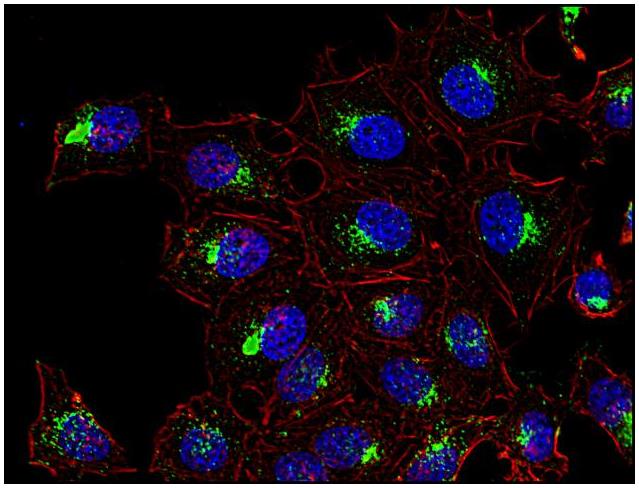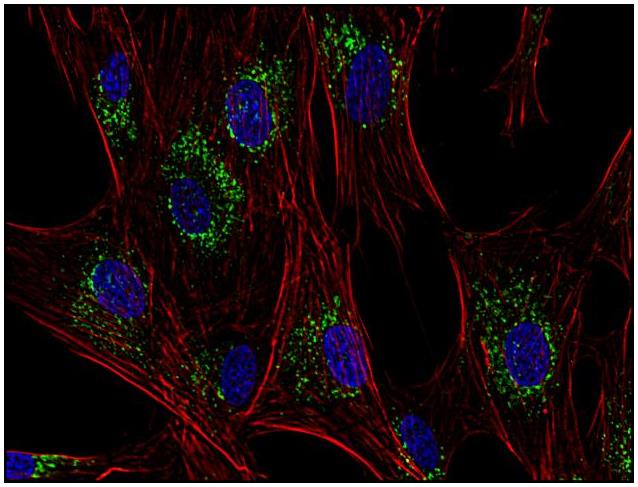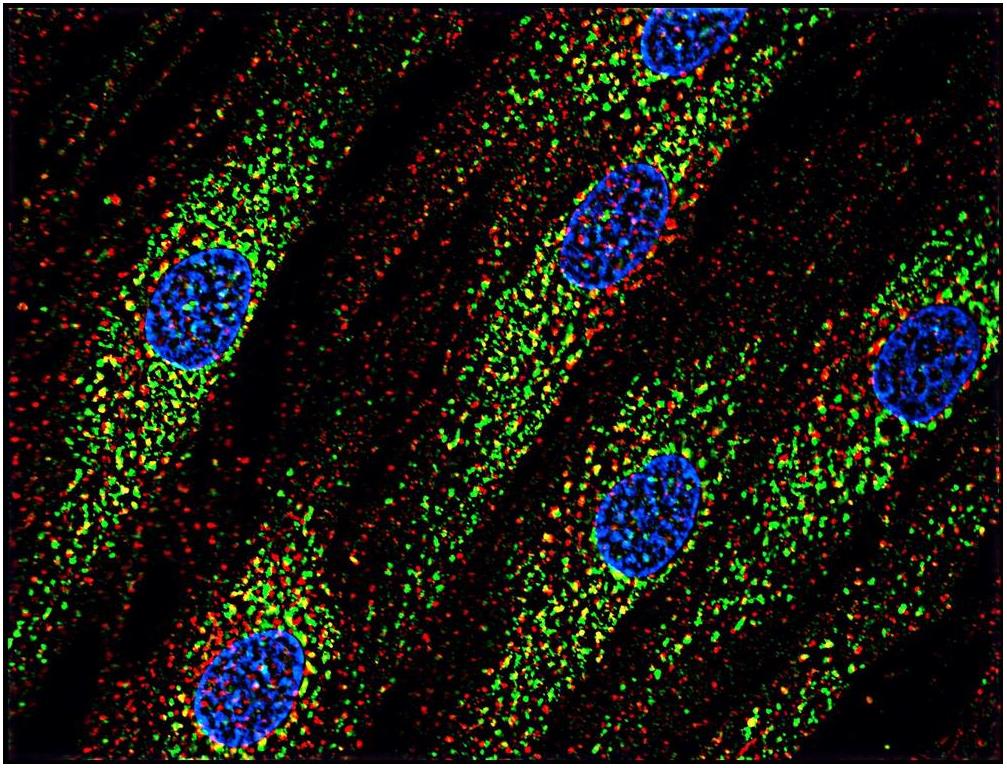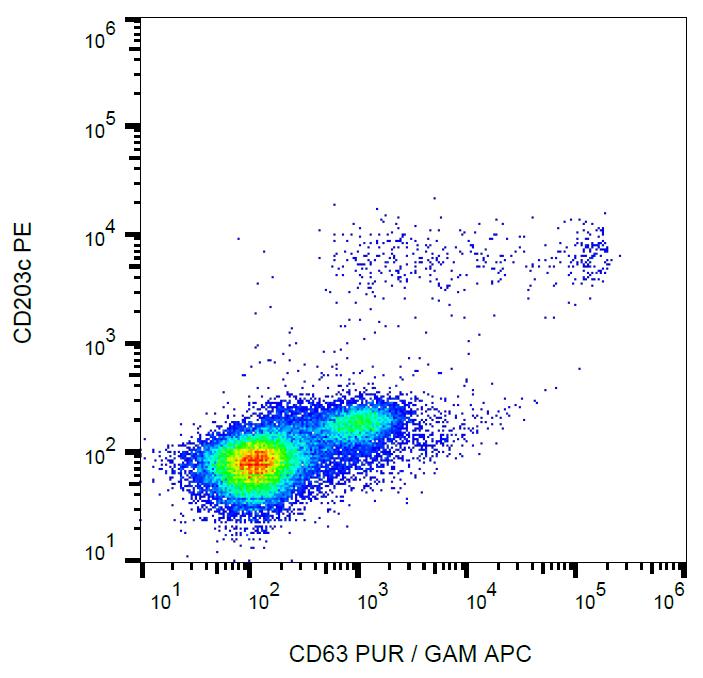
GTX28219 ICC/IF Image
CD63 antibody [MEM-259]

GTX28219
ApplicationsFlow Cytometry, ImmunoFluorescence, ImmunoPrecipitation, Western Blot, ImmunoCytoChemistry, ImmunoHistoChemistry, ImmunoHistoChemistry Paraffin
Product group Antibodies
ReactivityHuman
Overview
- SupplierGeneTex
- Product NameCD63 antibody [MEM-259]
- Delivery Days Customer10
- ApplicationsFlow Cytometry, ImmunoFluorescence, ImmunoPrecipitation, Western Blot, ImmunoCytoChemistry, ImmunoHistoChemistry, ImmunoHistoChemistry Paraffin
- CertificationResearch Use Only
- ClonalityMonoclonal
- Clone IDMEM-259
- Concentration1 mg/ml
- HostMouse
- IsotypeIgG
- Scientific DescriptionThe protein encoded by this gene is a member of the transmembrane 4 superfamily, also known as the tetraspanin family. Most of these members are cell-surface proteins that are characterized by the presence of four hydrophobic domains. The proteins mediate signal transduction events that play a role in the regulation of cell development, activation, growth and motility. The encoded protein is a cell surface glycoprotein that is known to complex with integrins. It may function as a blood platelet activation marker. Deficiency of this protein is associated with Hermansky-Pudlak syndrome. Also this gene has been associated with tumor progression. Alternative splicing results in multiple transcript variants encoding different protein isoforms. [provided by RefSeq, Apr 2012]
- ReactivityHuman
- Storage Instruction2°C to 8°C
- UNSPSC12352203
References
- Annexin A1 regulates EGFR activity and alters EGFR-containing tumour-derived exosomes in head and neck cancers. Raulf N et al., 2018 Oct, Eur J CancerRead more
- IKKbeta activation promotes amphisome formation and extracellular vesicle secretion in tumor cells. Peng X et al., 2021 Jan, Biochim Biophys Acta Mol Cell ResRead more
- LINC00511 drives invasive behavior in hepatocellular carcinoma by regulating exosome secretion and invadopodia formation. Peng X et al., 2021 Jun 4, J Exp Clin Cancer ResRead more
- Long non-coding RNA HOTAIR promotes exosome secretion by regulating RAB35 and SNAP23 in hepatocellular carcinoma. Yang L et al., 2019 Apr 3, Mol CancerRead more



